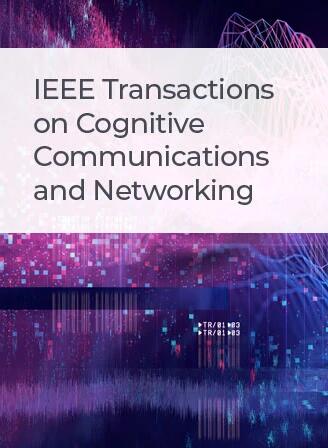用于合作定位的信息传递神经网络与信息传递算法
IF 7.4
1区 计算机科学
Q1 TELECOMMUNICATIONS
IEEE Transactions on Cognitive Communications and Networking
Pub Date : 2023-08-23
DOI:10.1109/TCCN.2023.3307953
引用次数: 0
摘要
协同定位(CP)依靠配备传感和通信技术的连接代理网络来提高独立解决方案的定位性能。在本文中,我们为 CP 开发了一个完全由数据驱动的模型,该模型结合了长短期记忆(LSTM)和信息传递神经网络(MPNN)。所提出的 LSTM-MPNN 模型是通过与基于概率的消息传递算法(MPA)进行类比而得出的,问题的图式结构和消息传递方案都是从 MPA 中继承而来。在我们的解决方案中,LSTM 模块预测代理的运动,而 MPNN 则详细说明节点和边嵌入情况,以便有效推断代理的状态。我们提出的数值证据表明,我们的方法可以提高位置估算能力,同时与针对非线性问题的基于粒子的典型 MPA 实现相比,其复杂性要低一个数量级。特别是,与基于 MPA 的 CP 相比,所提出的 LSTM-MPNN 模型可将代理定位误差减少到三分之一,收敛速度更高,并能更好地利用代理之间的合作。本文章由计算机程序翻译,如有差异,请以英文原文为准。
Message Passing Neural Network Versus Message Passing Algorithm for Cooperative Positioning
Cooperative Positioning (CP) relies on a network of connected agents equipped with sensing and communication technologies to improve the positioning performance of standalone solutions. In this paper, we develop a completely data-driven model combining Long Short-Term Memory (LSTM) and Message Passing Neural Network (MPNN) for CP, where agents estimate their states from inter-agent and ego-agent measurements. The proposed LSTM-MPNN model is derived by exploiting the analogy with the probability-based Message Passing Algorithm (MPA), from which the graph-based structure of the problem and message passing scheme are inherited. In our solution, the LSTM block predicts the motion of the agents, while the MPNN elaborates the node and edge embeddings for an effective inference of the agents’ state. We present numerical evidence that our approach can enhance position estimation, while being at the same time an order of magnitude less complex than typical particle-based implementations of MPA for non-linear problems. In particular, the presented LSTM-MPNN model can reduce the error on agents’ positioning to one third compared to MPA-based CP, it holds a higher convergence speed and better exploits cooperation among agents.
求助全文
通过发布文献求助,成功后即可免费获取论文全文。
去求助
来源期刊

IEEE Transactions on Cognitive Communications and Networking
Computer Science-Artificial Intelligence
CiteScore
15.50
自引率
7.00%
发文量
108
期刊介绍:
The IEEE Transactions on Cognitive Communications and Networking (TCCN) aims to publish high-quality manuscripts that push the boundaries of cognitive communications and networking research. Cognitive, in this context, refers to the application of perception, learning, reasoning, memory, and adaptive approaches in communication system design. The transactions welcome submissions that explore various aspects of cognitive communications and networks, focusing on innovative and holistic approaches to complex system design. Key topics covered include architecture, protocols, cross-layer design, and cognition cycle design for cognitive networks. Additionally, research on machine learning, artificial intelligence, end-to-end and distributed intelligence, software-defined networking, cognitive radios, spectrum sharing, and security and privacy issues in cognitive networks are of interest. The publication also encourages papers addressing novel services and applications enabled by these cognitive concepts.
 求助内容:
求助内容: 应助结果提醒方式:
应助结果提醒方式:


